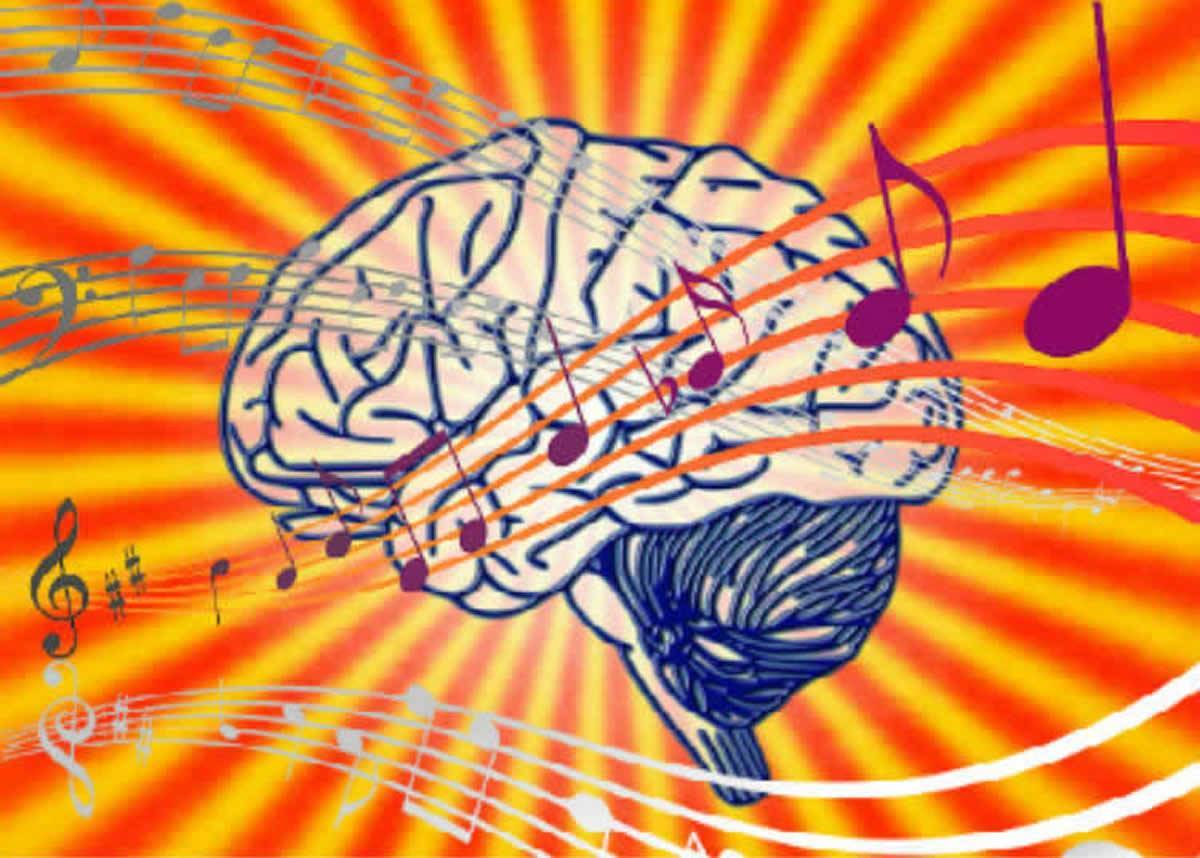(Neuroscience News) A new mathematical model can predict how the brain reacts when learning a rhythmic beat. The model shows how a neural network can act as a ‘neural metronome’ by estimating time intervals between beats within tens of milliseconds. The metronome relies on gamma oscillations to keep track of time.
Related Scientists Unveil a ‘Brain Decoder’ That Turns Neural Activity Into Speech
by Staff Writer, May 10th, 2019
A new mathematical model demonstrates how neurons in the brain could work together to learn and keep a musical beat. The framework, developed by Amitabha Bose of New Jersey Institute of Technology and Aine Byrne and John Rinzel of New York University, is described in PLOS Computational Biology.
Many experimental studies have established which brain areas are active when a person listens to music and discerns a beat. However, the neuronal mechanisms underlying the brain’s ability to learn a beat–and then keep it after the music stops–are unknown. Bose and his colleagues set out to explore what these neuronal mechanisms might be.
Buy Book Music Therapy Handbook (Creative Arts and Play Therapy)
[the_ad id=”69872″]
Using neurobiological principles, the researchers built a mathematical model of a group of neurons that can cooperate to learn a musical beat from a rhythmic stimulus and keep the beat after the stimulus stops. The model demonstrates how a network of neurons could act as a “neuronal metronome” by accurately estimating time intervals between beats within tens of millisecond accuracy. This metronome relies on rhythmic brain activity patterns known as gamma oscillations to keep track of time.
“We listen to music and within a few measures our body moves to the beat,” says Rinzel. “Our model suggests how the brain might learn a rhythm and learn it so fast.”
Next, the researchers plan to test their model with real-world psychoacoustic experiments and electroencephalogram (EEG) tests, which reveal activity in a person’s brain. These experiments will show how accurately the model might reflect actual neuronal mechanisms involved in learning a beat.
“Our findings provide new insights into how the brain might synthesize prior knowledge to make predictions about upcoming events, specifically in the realm of musical rhythm and keeping time,” Bose says. Beyond music, the new model could help improve understanding of conditions in which the ability to accurately estimate time is impaired, such as in Parkinson’s disease.
Funding: The authors A Bose and JR received no specific funding for this work. A Byrne was funded by the Swartz Foundation on a postdoctoral fellowship. The funders had no role in study design, data collection and analysis, decision to publish, or preparation of the manuscript.
Buy Binaural Beat Music for Balanced Consciousness
[the_ad id=”69045″]
Stillness in the Storm Editor: Why did we post this?
Psychology is the study of the nature of mind. Philosophy is the use of that mind in life. Both are critically important to gain an understanding of as they are aspects of the self. All you do and experience will pass through these gateways of being. The preceding information provides an overview of this self-knowledge, offering points to consider that people often don’t take the time to contemplate. With the choice to gain self-awareness, one can begin to see how their being works. With the wisdom of self-awareness, one has the tools to master their being and life in general, bringing order to chaos through navigating the challenges with the capacity for right action.
– Justin
Not sure how to make sense of this? Want to learn how to discern like a pro? Read this essential guide to discernment, analysis of claims, and understanding the truth in a world of deception: 4 Key Steps of Discernment – Advanced Truth-Seeking Tools.
Stillness in the Storm Editor’s note: Did you find a spelling error or grammar mistake? Send an email to [email protected], with the error and suggested correction, along with the headline and url. Do you think this article needs an update? Or do you just have some feedback? Send us an email at [email protected]. Thank you for reading.
Source:
https://neurosciencenews.com/math-brain-rhythm-13065/

Leave a Reply